Future Earth and its Networks Present Research, Host Events at 28,000 Person Meeting
Every year the American Geophysical Union Fall Meeting brings together a diverse community of Earth and space scientists for the largest international Earth and space science meeting in the world. This year, Future Earth and 13 of its Global Research Projects and several Knowledge-Action Networks joined 28,000 attendees in San Francisco, presenting and co-chairing more than 40 posters, oral sessions, and town halls about everything from fire, watersheds, and land use changes, to methane emissions and extreme events.
This year Future Earth also partnered with Belmont Forum and Inter-American Institute for Global Research (IAI) to host a booth in the exhibit hall, where attendees could come and learn about our many initiatives and the upcoming SRI2020. PAGES Science Officer Sarah Eggleston joined us on Tuesday, December 10, to represent the recent work and research of the Future Earth Global Research Project – which held many of its own events throughout the week.
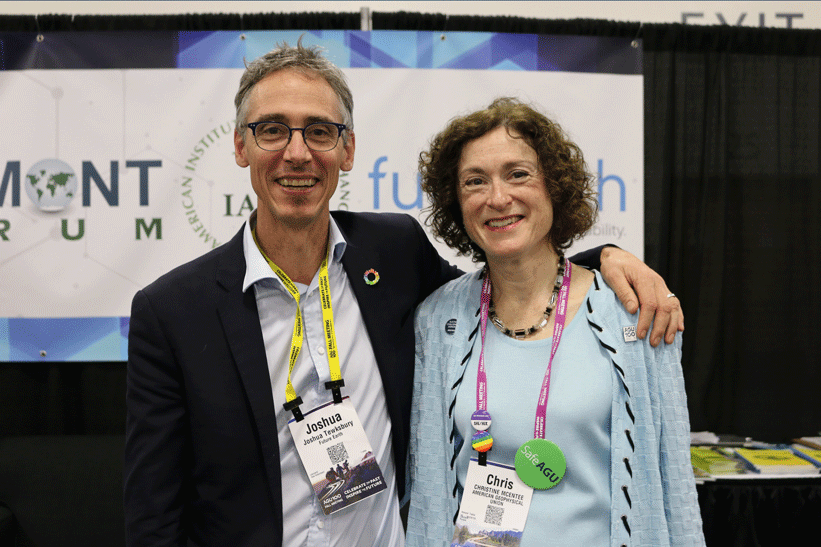
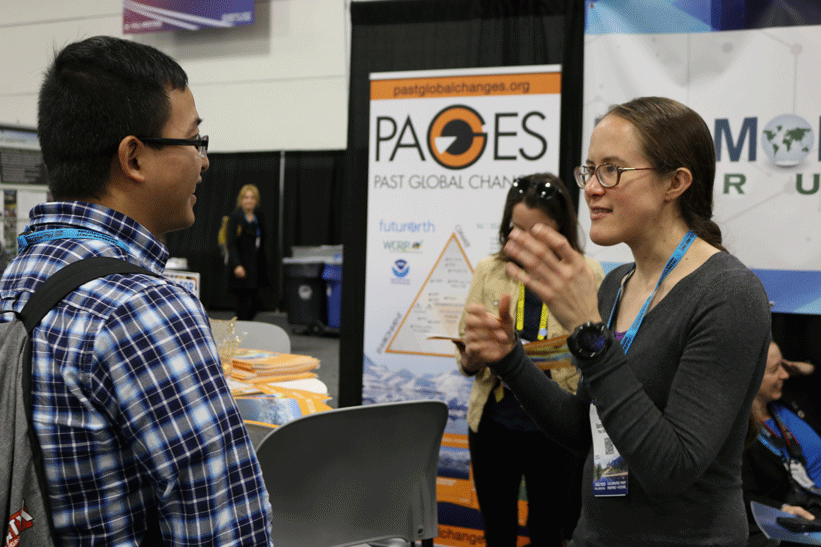
Posters and Presentations
On Monday, December 9, Hannah Liddy (AIMES, Columbia University of New York) co-convened an oral and poster session on Fire and Smoke: Impacts Near and Far, a collaborative session organized in part by AIMES, IGAC, ILEAPS, GCP, and PAGES. The goal of this session at AGU was to get sense of where the research community is at, and if the GRPs could convene an activity to support this exciting field from an Earth system perspective.
The recent extreme fire events have attracted early career scientists from diverse backgrounds to the field, according to Liddy, and what resulted was a really interesting range of speakers. This session and the many other fantastic sessions on wildfire at AGU highlighted a vibrant field of researchers investigating the complexity and evolution of fire extremes and their impacts both locally and globally.
Speakers included Craig Clements from San Jose State, a “smoke chaser,” who presented recent meteorological observations from a rapid-response mobile atmospheric profiling system deployed in close proximity to the active fire for an unprecedented new perspective into the plume dynamics of large active wildfires. Rachel Morello-Frosch from UC Berkeley presented a pilot biomonitoring study to characterize the exposure of firefighter responders to environmental chemicals (including mercury and perfluoroalkyl substances linked to cancer) during the 2018 Tubbs fire in Northern California, a growing concern as fires increasingly penetrate into the expanding wildland-urban interface.
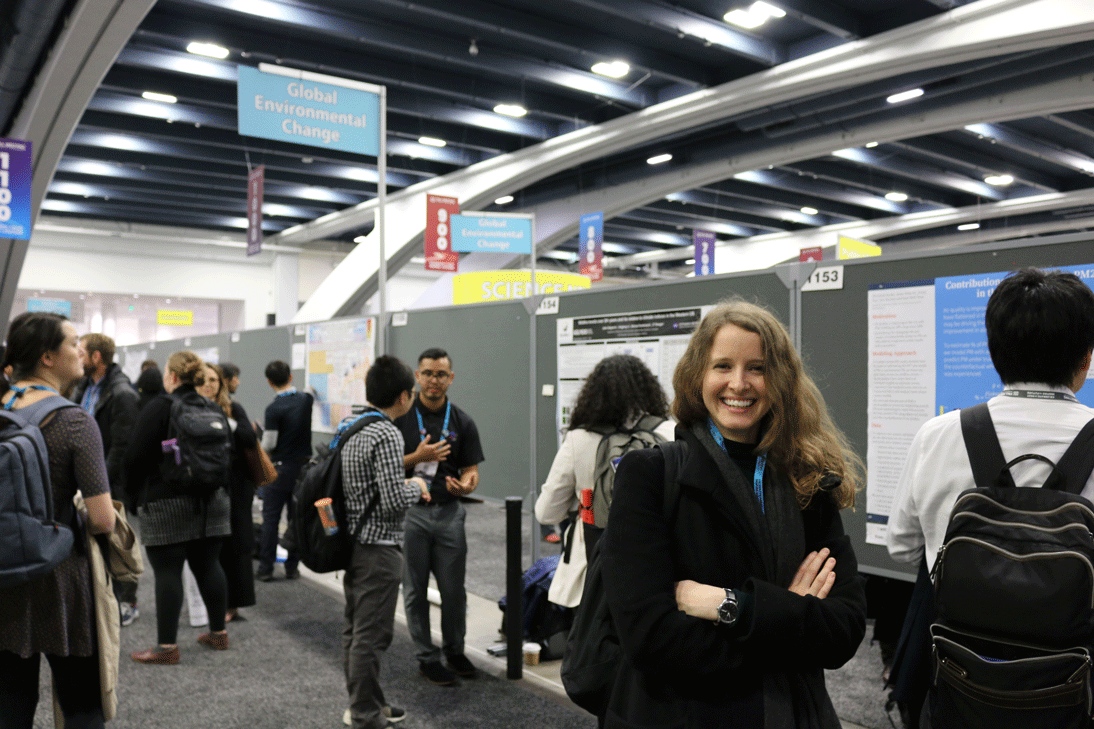
Other posters included Future Earth’s “Science Based Pathways for Sustainability Initiative,” authored by Josh Tewksbury, Vincent Virat, and Hannah Moersberger, held within the session convened by Erica Key (Belmont Forum) and Josh Tewksbury, “Codeveloped and Coimplemented: Advancing Transdisciplinary Approaches to Global Change Challenges.” Future Earth is leading the Science Based Pathways for Sustainability Initiative to contribute to knowledge-based decision making that supports achievement of the SDGs within a resilient, life-supporting Earth system. It will achieve its objectives by co-designing sustainability pathways together with natural and social scientists, policy makers, business and civil society at the national level, followed by consolidation and integration at the regional and international levels.
Global Research Projects presented many posters throughout the week, from Future Earth Coasts, PAGES, AIMES, IGAC, Global Land Programme, and more.
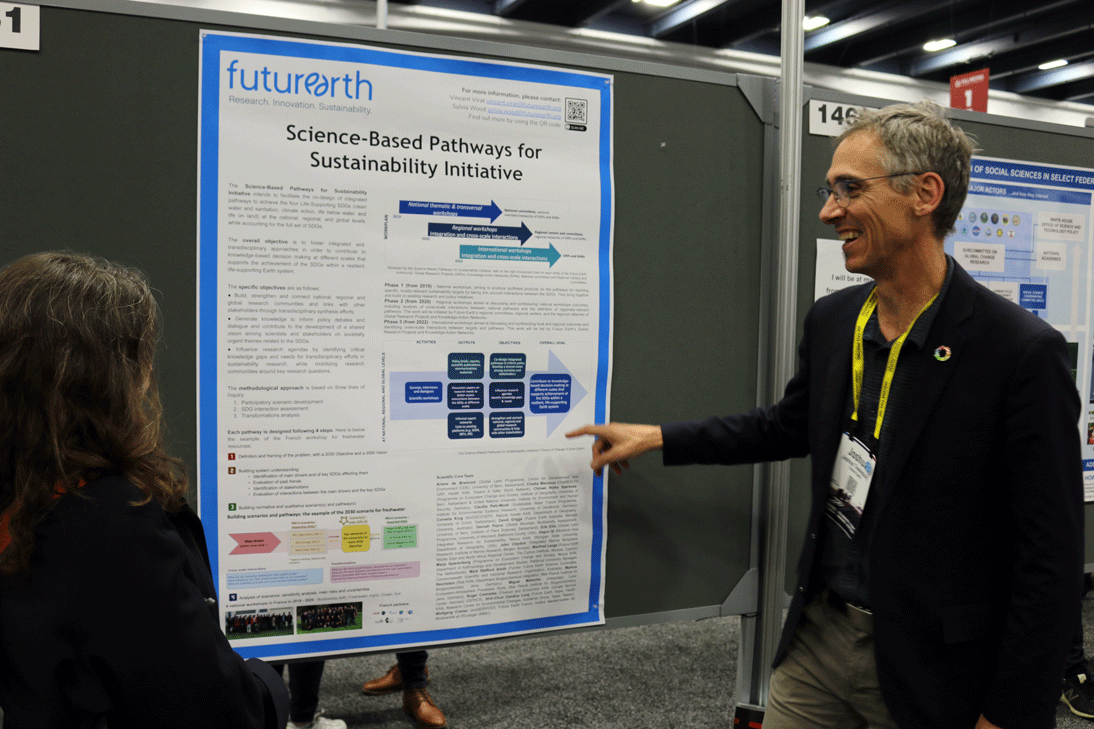
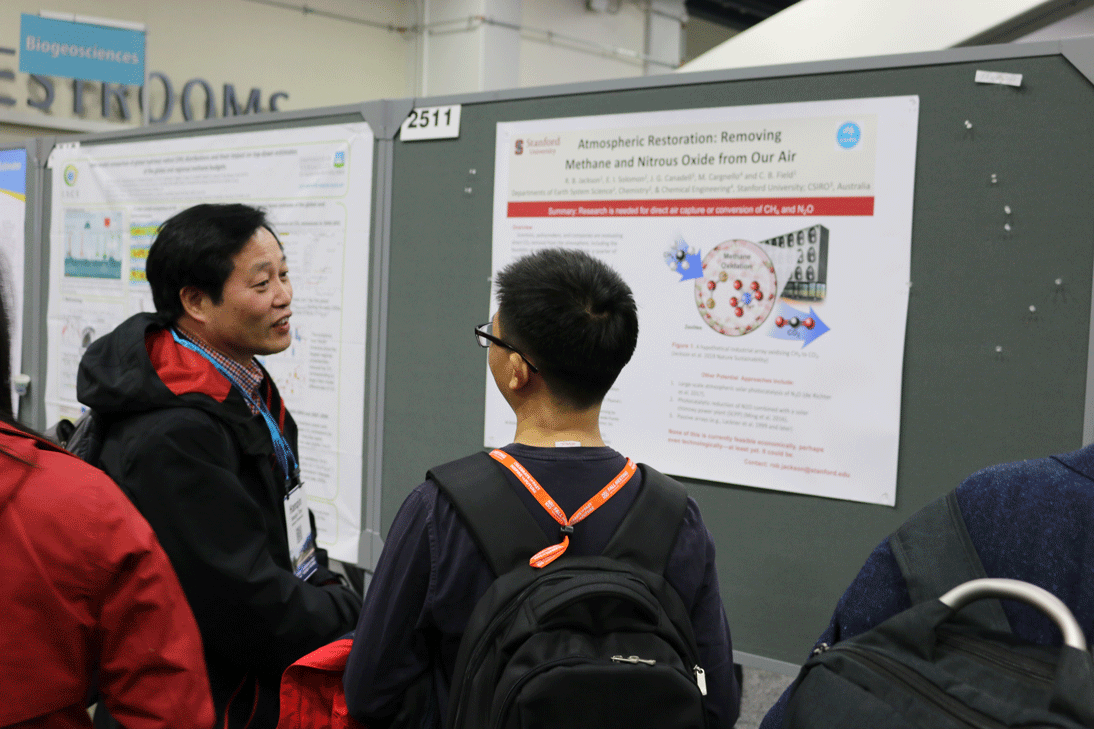
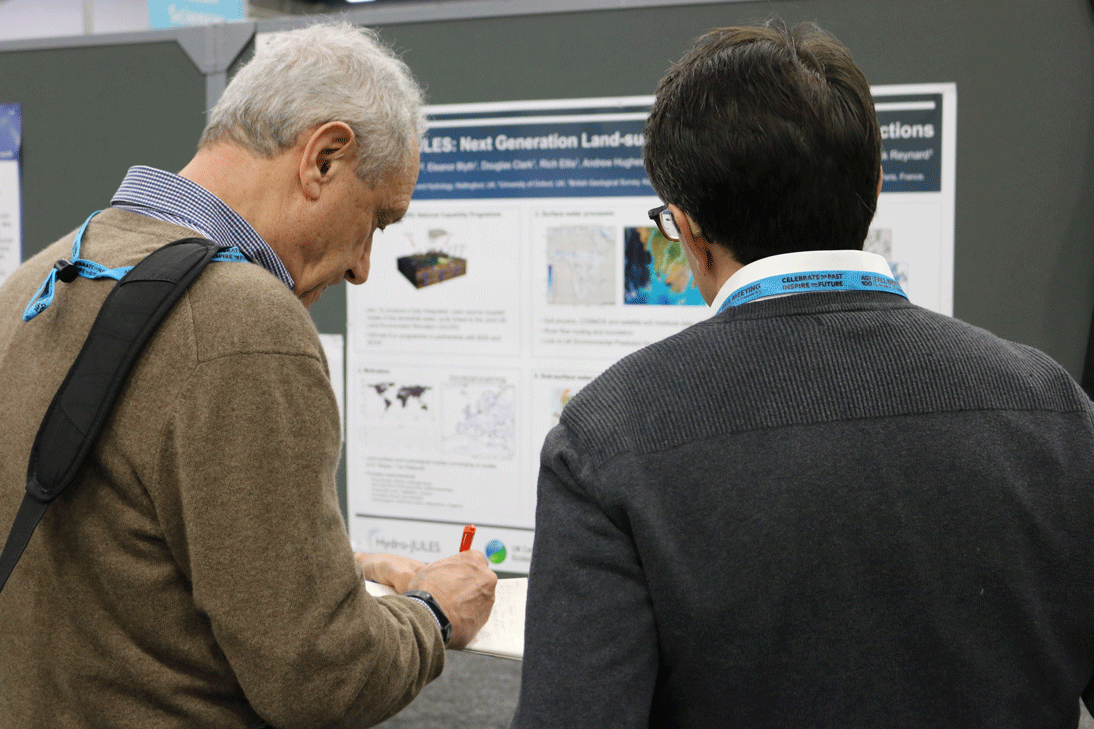
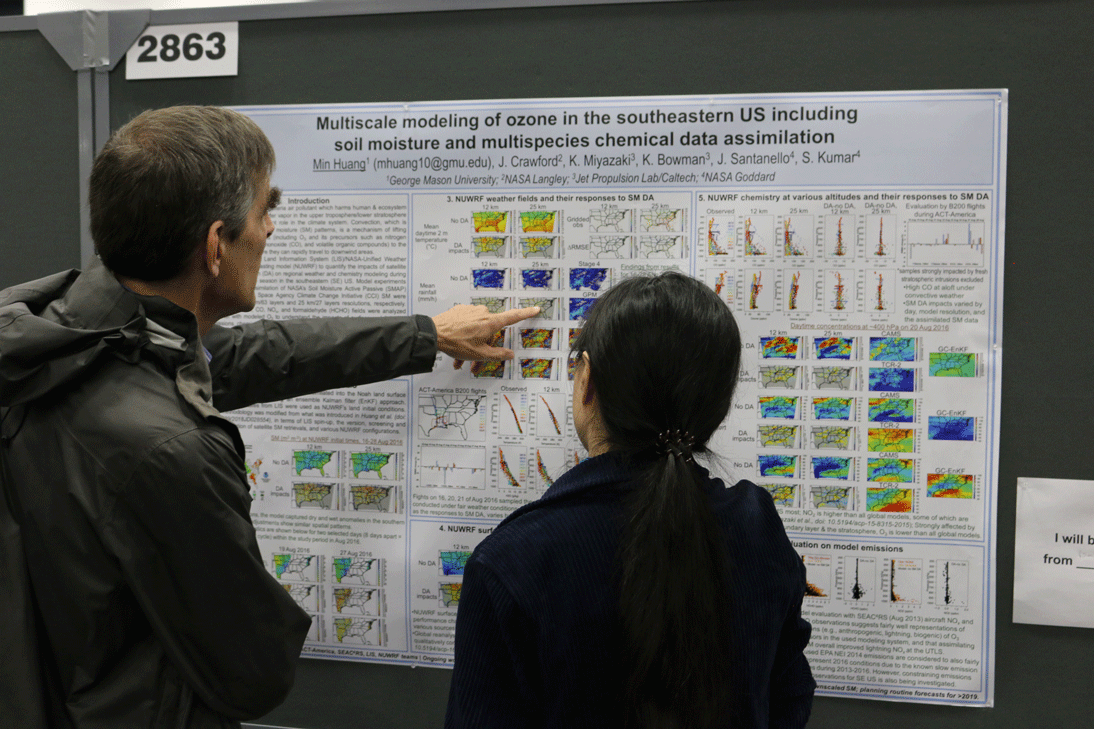
Presentations by Global Research Projects during the week included a review of the global methane cycle and budget from members of the Global Carbon Project, climatic effects of global deforestation from AIMES, and land use changes in Argentina with authors from the Global Land Programme.
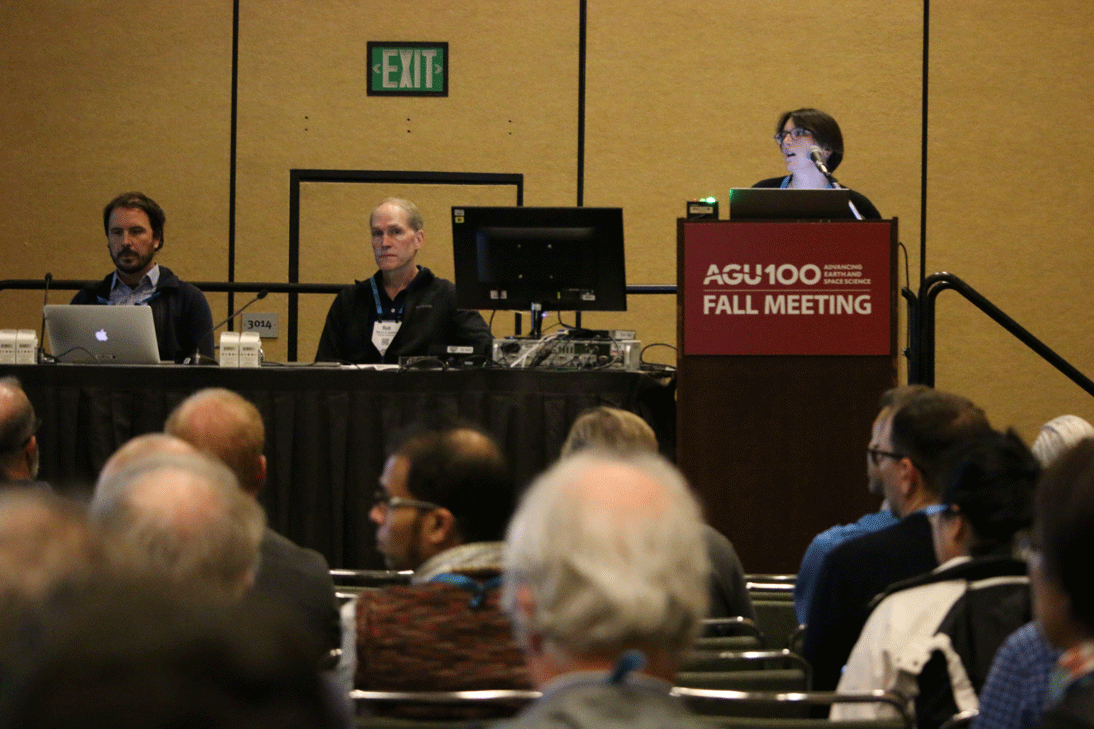
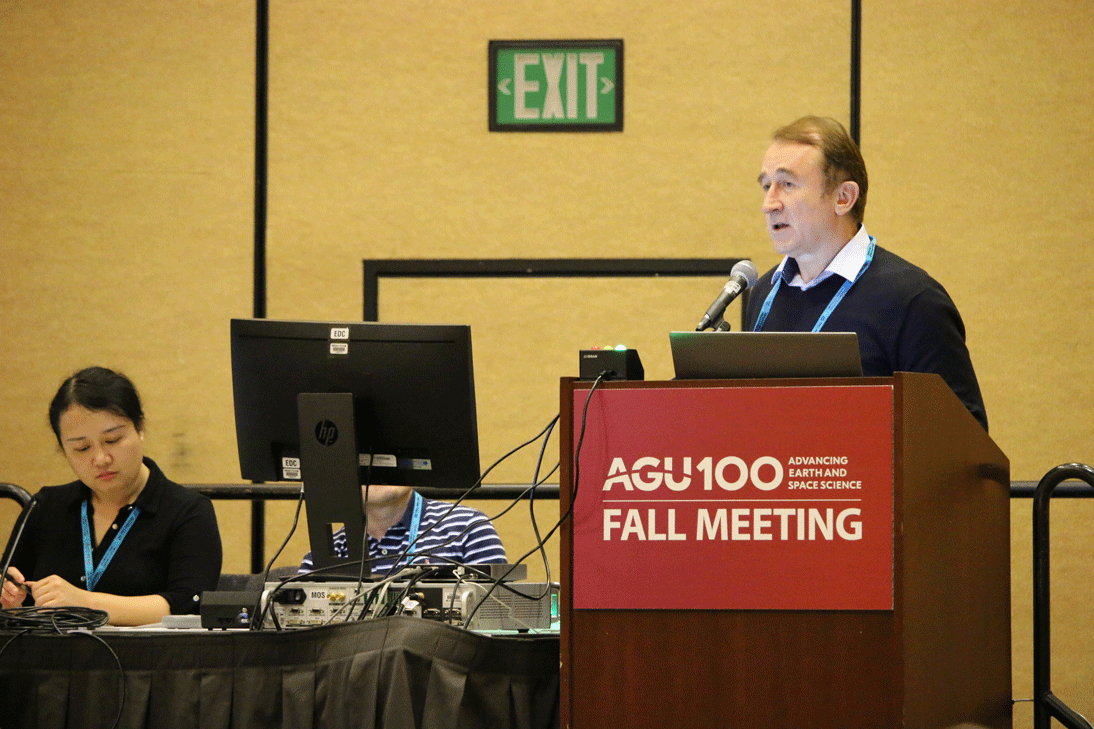
Sustainability Research and Innovation Town Hall
On Wednesday, December 11, representatives of Future Earth, Belmont Forum, AGU, the U.S. Global Change Research Program, and the National Science Foundation came together to discuss “Sustainability and Innovation: Synergies and Connections Between Societies to Support Sustainability Science.”
This townhall session at AGU Fall Meeting 2019 was designed to explore 1) the essential elements for support for sustainability science, 2) the key design principles of such an event, and 3) the synergies that can be developed between the large, well established convenings such as AGU and the SRI conference series.
Judit Ungvari (AAAS) moderated, and presenters included Erica Key (Belmont Forum), Josh Tewksbury (Future Earth), Mark Shimamoto, (AGU, USGCRP), and Maria Uhle (NSF).
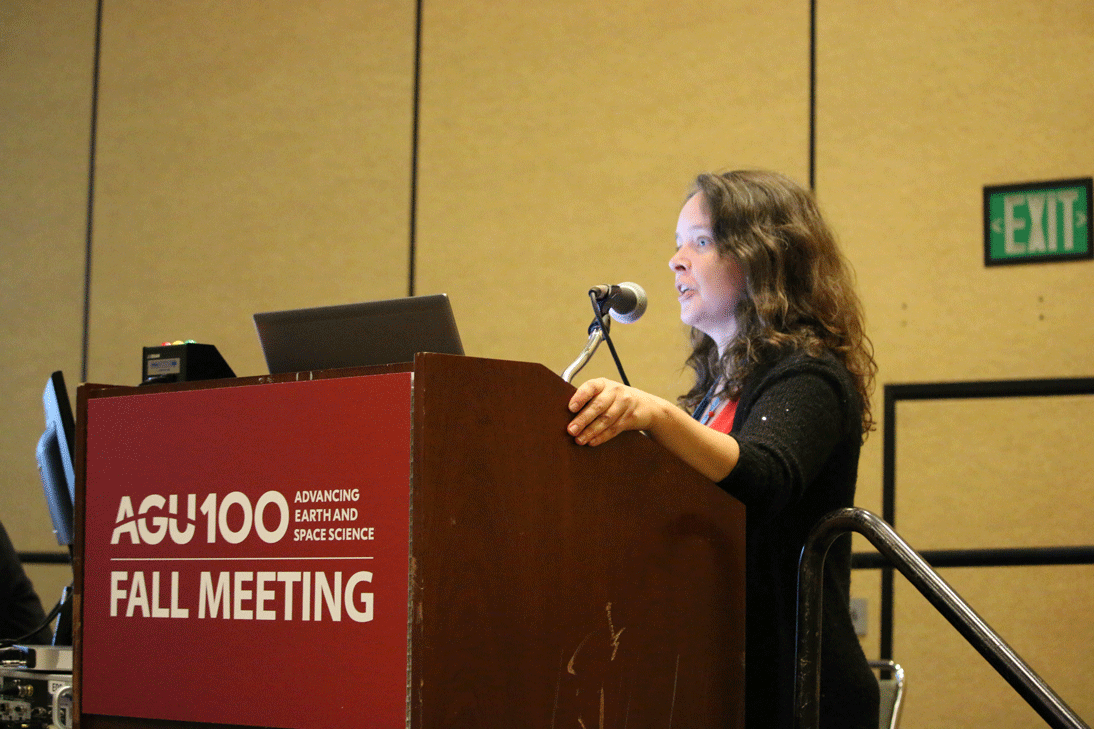
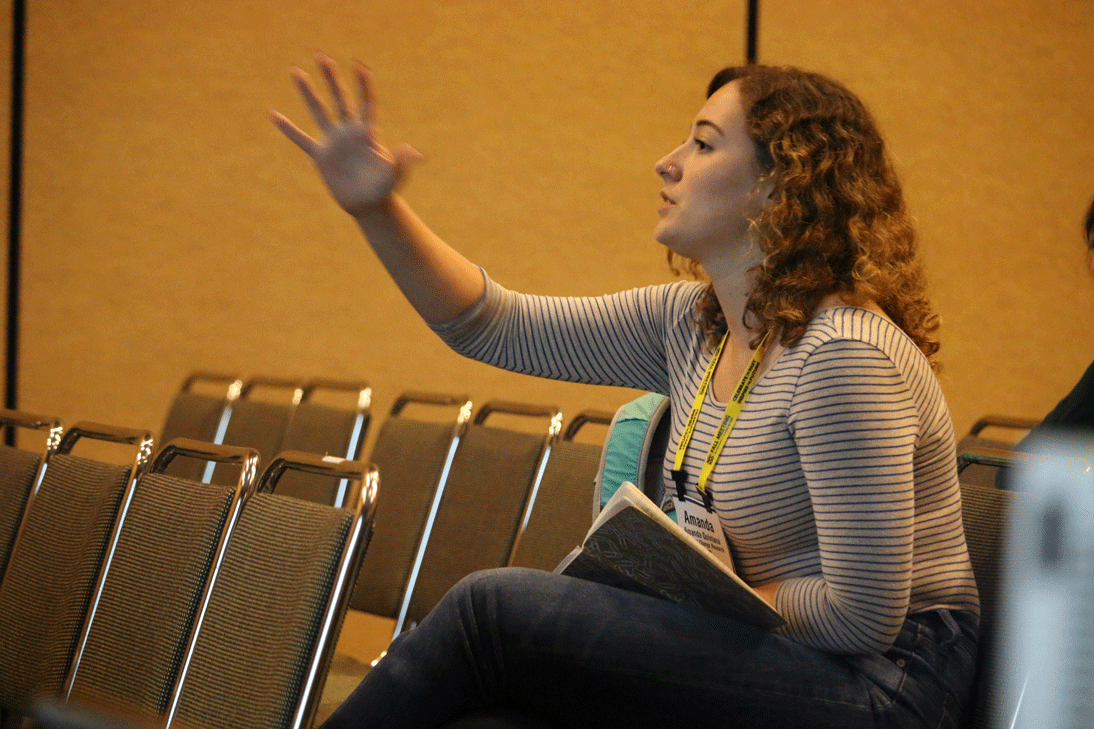
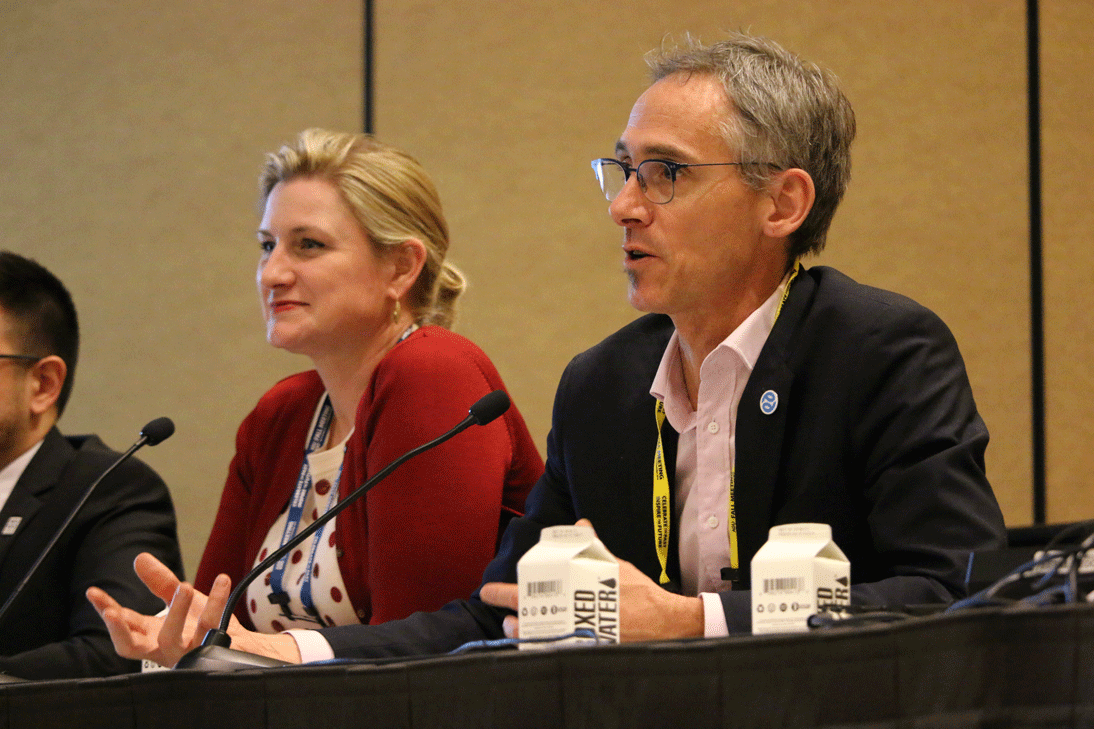
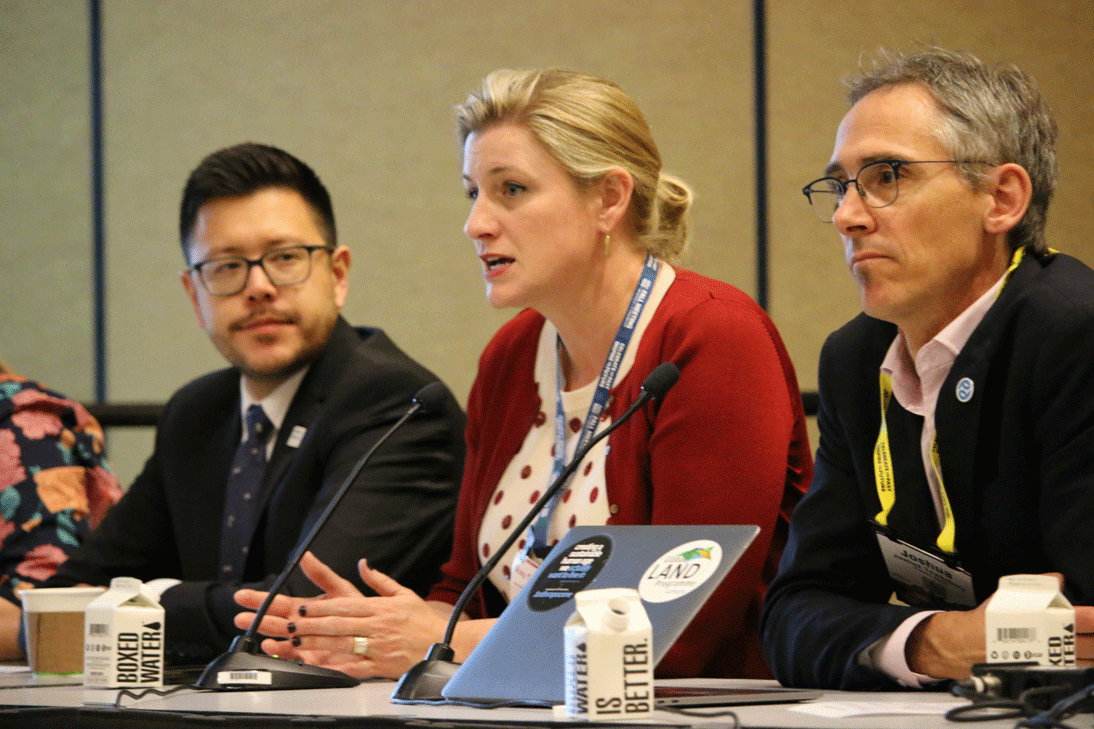
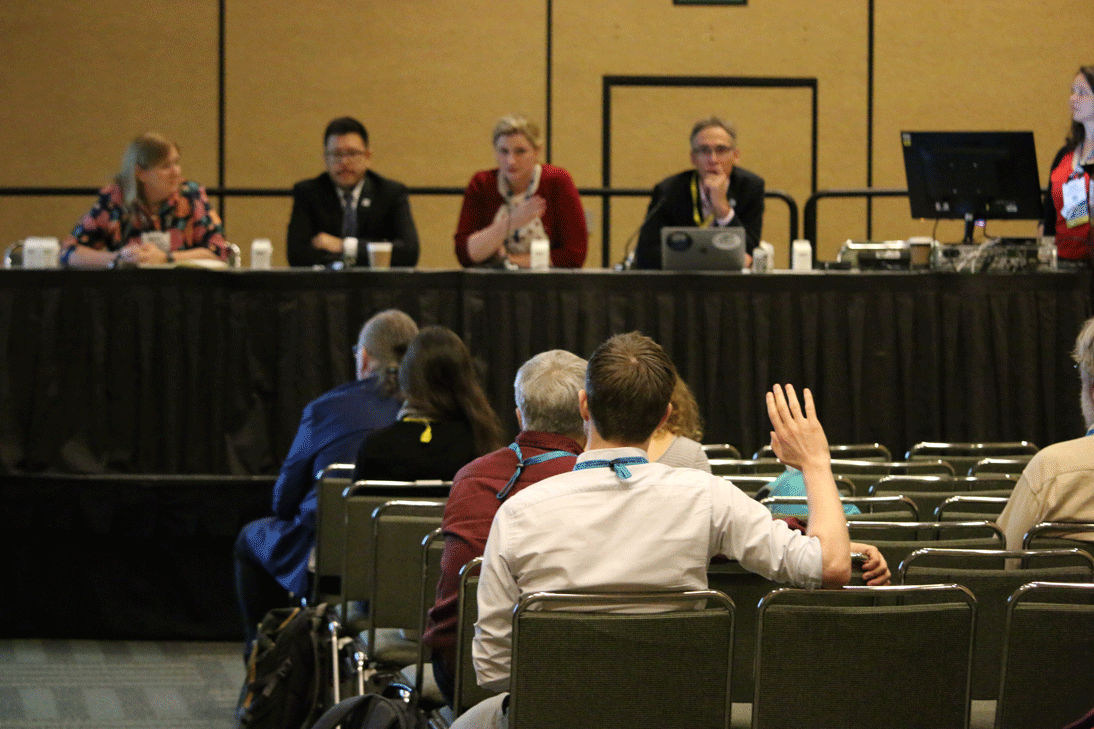
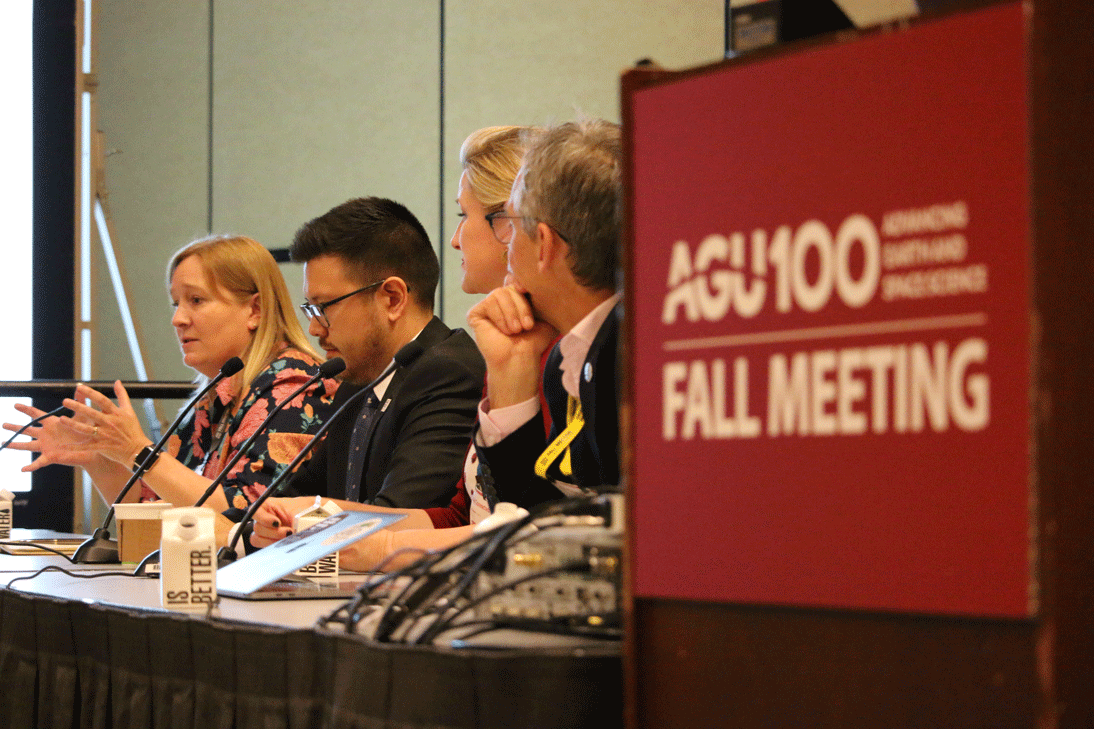
That evening, Future Earth hosted a happy hour with Belmont Forum and IAI to gather our communities for informal conversation and to discuss SRI2020.
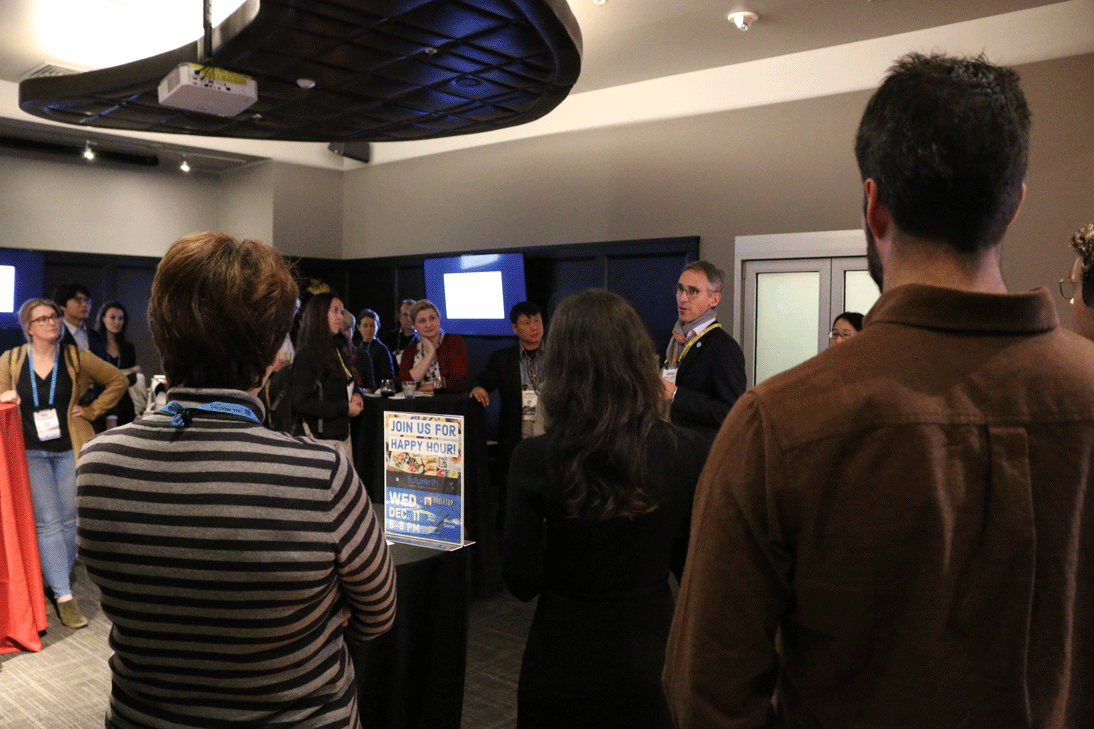
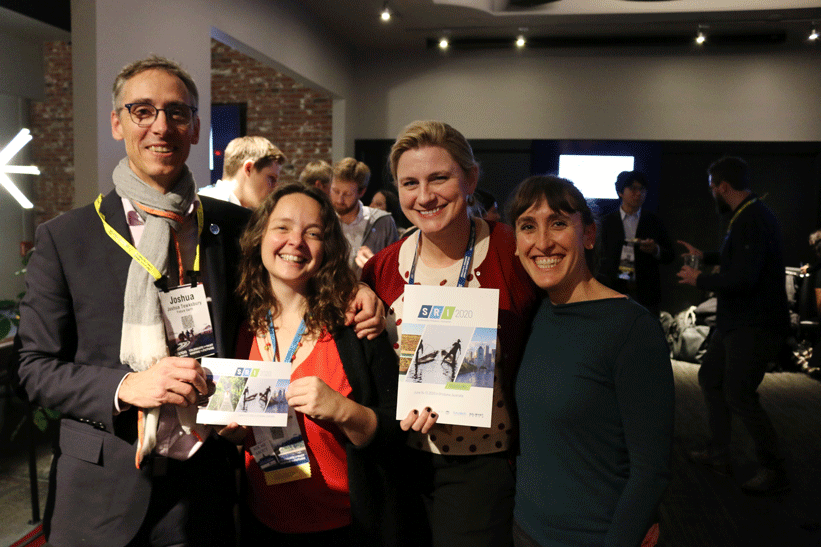
RISK KAN Town Hall
The Knowledge Action Network on Emergent Risks and Extreme Events, a joint initiative of the Future Earth, IRDR and WCRP programs, held a town hall on Friday, December 13. The Town Hall aimed to start the global initiatives to seek collaboration and participation at large for building The Knowledge Action Network on Emergent Risks and Extreme Events, and problem identifications in management of risks and extreme events.
The Knowledge-Action-Network (KAN) on Emergent Risks and Extreme Events provides an open platform for scientific communities from across science disciplines and engineering working on extreme events, disaster risk reduction and governance to exchange information, knowledge and data and engage in collaborative research activities.
Presenters included Markus Reichstein (Max Planck Institute for Biogeochemistry, Emergent Risks and Extreme Events Knowledge-Action Network) and Kalpana Chaudhari (Institute For Sustainable Development and Research, ISDR, India, and Development Team Member, Ocean Knowledge-Action Network, Emergent Risks and Extreme Events Knowledge-Action Network).
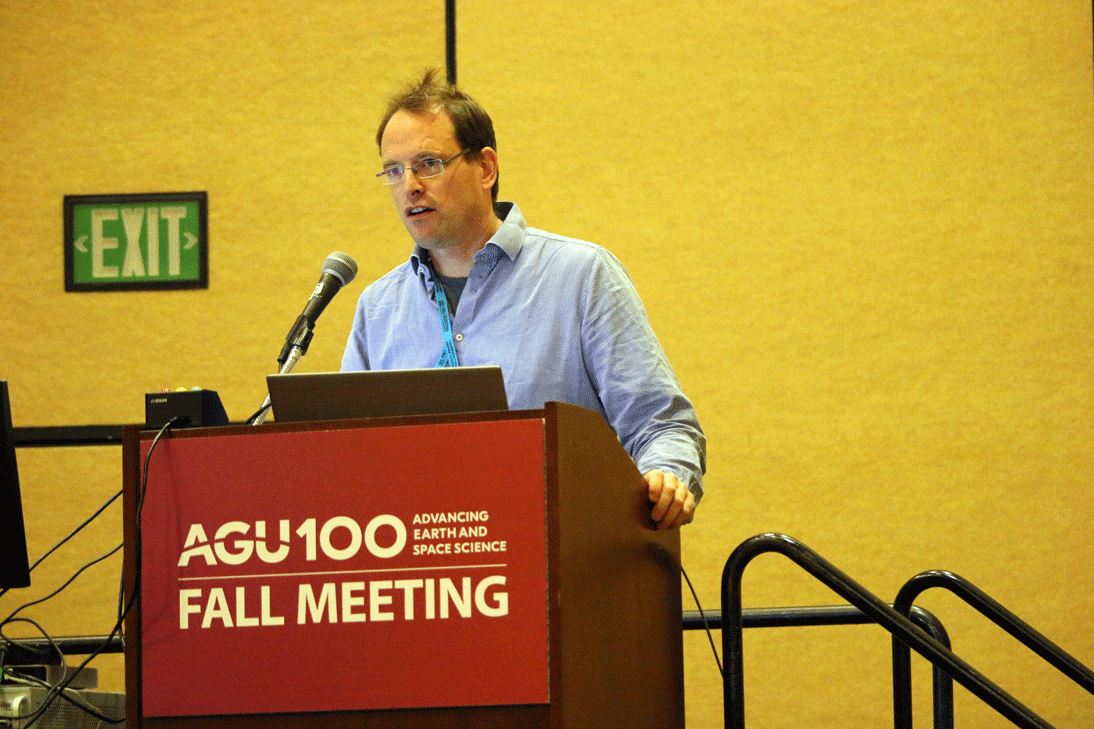
DATE
December 16, 2019AUTHOR
Kelsey SimpkinsSHARE WITH YOUR NETWORK
RELATED POSTS
Program Now Available for the Year’s Top Sustainability Science and Innovation Event in Finland
Future Earth Members Join UN Ocean Conference in Barcelona
Apply for the 2024 Pathways Autumn School: Transformative Research for a Just World and a Habitable Planet